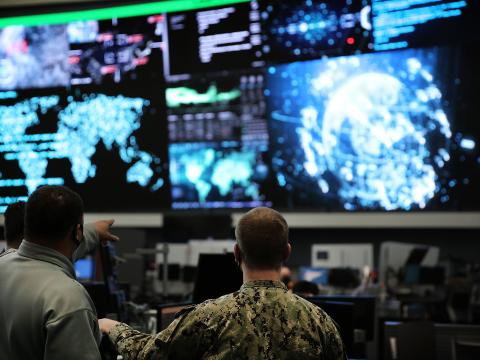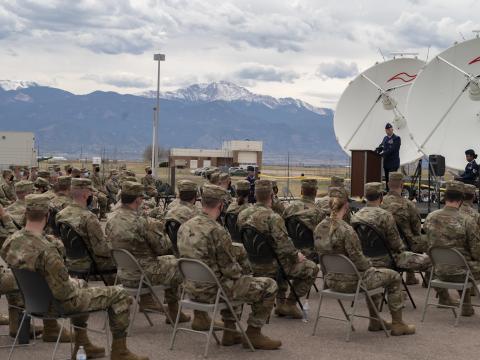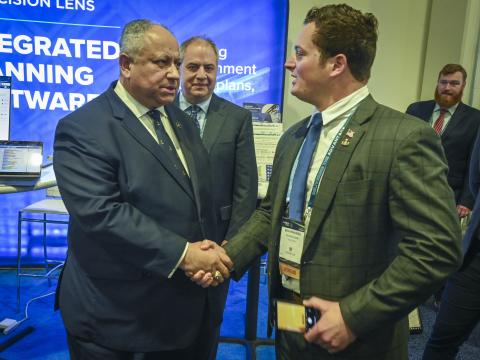Military Plays Crucial Role in Homeland Protection
Representatives from the U.S. Defense Department's homeland defense arm and the U.S. Coast Guard wrapped up Wednesday's dialogues during AFCEA's Homeland Security conference by explaining their contributions to homeland security. While these discussions generally refer to the "Post-9/11 World," this panel focused instead on the "Post-Katrina World" and the improvements that have taken place in communications and coordination.
Representatives from the U.S. Defense Department's homeland defense arm and the U.S. Coast Guard wrapped up Wednesday's dialogues during AFCEA's Homeland Security conference by explaining their contributions to homeland security. While these discussions generally refer to the "Post-9/11 World," this panel focused instead on the "Post-Katrina World" and the improvements that have taken place in communications and coordination.
Col. Michael J. Curry, USA, deputy director of command, control systems, Headquarters North American Aerospace Defense Command and U.S. Northern Command (NORTHCOM), emphasized that his command provides direct support to the U.S. Department of Homeland Security through defense support to civil authorities. Among the activities it is involved in are maintaining watch lists and providing assistance during crises, such as the Southern California wild fires. For the latter, Col. Curry stated that there was extraordinary interoperability in communications at the commander level; however, work is still needed in the area of facilitating communications at the ground level.
NORTHCOM also is involved in preparing for chemical, biological, nuclear and radiological event emergency response, the colonel explained. Training has taken place and will continue in this area, he stated.
Among the "operational seams" that exist is C2; however, Col. Curry explained that, unlike the traditional spell-out of this acronym, at NORTHCOM it stands for coordinate and collaborate. "We have to enable this. We need to train more together. DOD trains together, but we have to bring that mindset to the Coast Guard, DOD and the National Guard. We need the commitment to time and dollars from leadership to make sure this happens," the colonel said.
In terms of information sharing, he added that the issue is not as much about how organizations communicate as it is about what information they communicate. Technology enables the communications, but oftentimes the same information is being presented over and over again, he said. Also, the technology acquisition cycles in the various organizations that must coordinate and collaborate are not aligned sufficiently to result in the best and most effective tools, Col. Curry pointed out.
Representatives from the U.S. Coast Guard explained some of the challenges they face when assisting in crises such as hurricane response. During Katrina, for example, information sharing was ongoing, but it was going on over the Internet with no procedures in place to document and ensure a timely flow of information. A web-based system is now in place to address this challenge and ensure that only necessary equipment is sent to the appropriate sites.
In addition, the Coast Guard and National Guard are now using technologies that allow them to plan the coordinated actions they will take during an emergency or contingency situation. An internal assessment is underway to determine if enough coordination is taking place with NORTHCOM and various regions in the United States.



